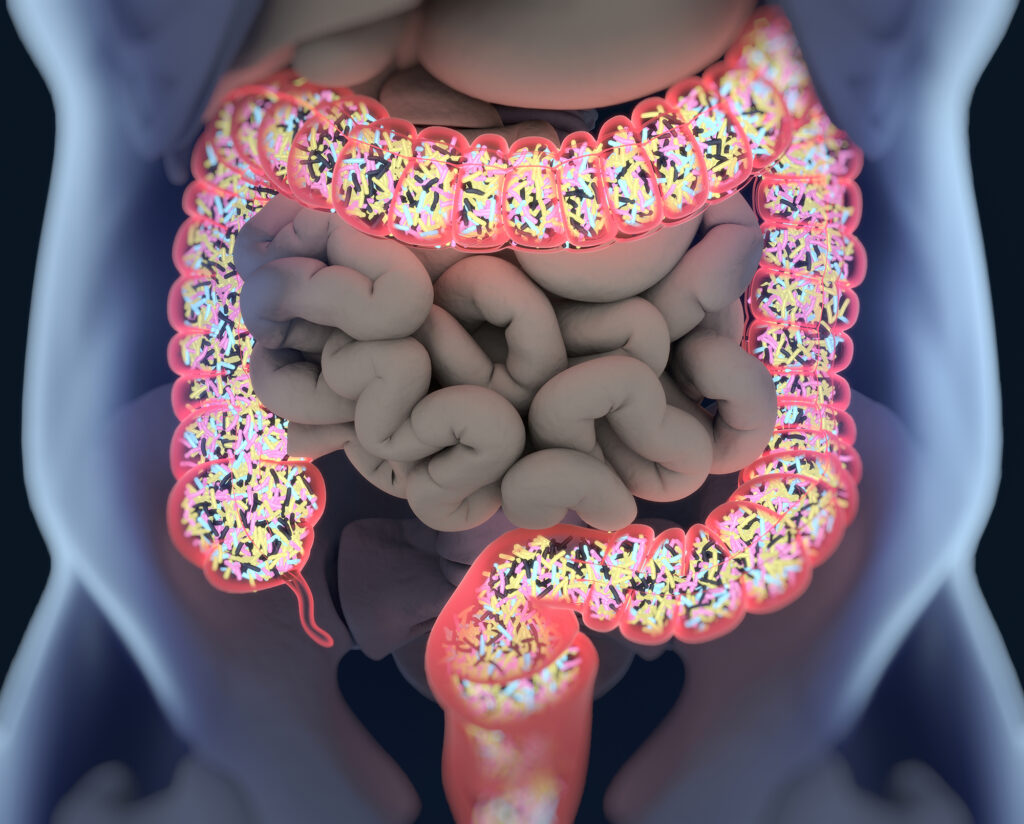Researchers at the University of Sydney in Australia have discovered that certain genes influence the health of the gut microbiome to protect against obesity and diabetes by coding for specific proteins called alpha-defensins. These findings open up new avenues for personalized treatments, because they show that the gut microbiome is shaped by more than just diet.
Researchers worldwide have been studying the human microbiome and its link to health and diseases for many years, and interest in the microbiome is expected to rise. In 2024, the global human microbiome market was valued at $0.91 billion, growing to an estimated $1.4 billion in 2025. By 2031, it is projected to reach a value of approximately $7 billion.
“After decades of research linking the gut microbiome to almost every chronic disease, it may seem like we’re all being held hostage by the bugs that live inside us,” said Stewart Masson, PhD, researcher at the Charles Perkins Centre, University of Sydney, and first author of the new study.
“While gut microbes certainly influence everything from diabetes to depression, this study has revealed that our bodies aren’t just passive hosts.”
In their study, published in the EMBO Journal and titled “Genetic Variance in the Murine Defensin Locus Modulates Glucose Homeostasis,” the researchers originally wanted to observe the genetic influences of insulin resistance in mice. However, they soon discovered that mice who were less likely to develop insulin resistance also had genes that influenced the production of defensin proteins in the intestinal lining.
“Defensin peptides are present in a wide range of organisms, from plants to mice and humans, and are thought to be the earliest precursor to an immune system,” Masson explained. “Mice and humans seem to have evolved many defensin genes, each making a different peptide. It is thought that this diversity allows our immune system to fend off a wide range of attackers.”
After their initial discovery, the researchers decided to take a closer look at the genes coding for the defensin proteins. Using mice, they performed genetic mapping of insulin sensitivity and identified a significant locus on one chromosome that carried 17 defensin genes. This genetic region is shared by mice and humans alike.
The researchers then conducted a systems genetics approach, including techniques such as single-nucleotide polymorphism analysis and RNA sequencing, and identified alpha-defensin 26 (Defa26) as the key gene controlling the production of alpha-defensin.
To validate their findings, the researchers then synthesized the Defa26 protein in the lab and fed it to two different groups of mice. One group had low endogenous expression of Defa26, while the other group of mice had a higher endogenous expression of Defa26.
Those mice lacking Defa26 benefited greatly from supplementation and revealed improved insulin sensitivity and reduced gut permeability.
“These initial findings are exciting because they show we can potentially use peptides to address chronic diseases from diabetes to obesity to depression—all of which have been linked to the health of our microbiome over decades of research,” said Masson.
However, the mice with higher endogenous expression of Defa26 were worse off after receiving Defa26 supplementation, revealing exceptionally low levels of insulin in the blood, glucose intolerance, and muscle wasting.
Commenting on these findings, Masson explained: “This shows the importance of ‘personalized medicine,’ or tailoring treatments to complement the genes of individuals rather than taking a one-size-fits-all approach to medications. We need to establish how different individuals and microbiomes react to the same treatments, whether they be defensin peptides or common medications already in use.”
The research team now wants to explore the role of defensins and the genes encoding them in humans. Specifically, they want to understand how these proteins can be measured in the gut and how they may influence the human gut microbiome and metabolic health.
“Our work clearly shows how manipulating the gut microbiome with these peptides benefits some but not others,” said co-author David James, PhD, professor at the University of Sydney and interim academic director of the Charles Perkins Centre.
“This highlights both the potential of precision medicine and the potential dangers of trying to alter our gut microbiome, such as with supplements or even fad diets, before we know more about how our bodies maintain healthy microbiomes unique to each of us. We are at the foothills of precision medicine, and the picture looks promising, but we have a long way to go.”

